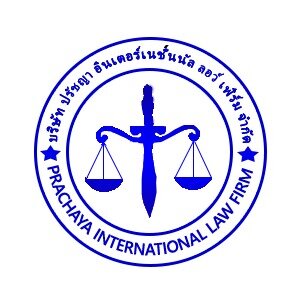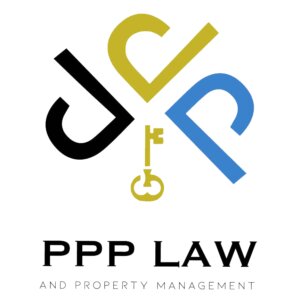Best Landlord & Tenant Lawyers in Huai Khwang
Share your needs with us, get contacted by law firms.
Free. Takes 2 min.
Free Guide to Hiring a Real Estate Lawyer
List of the best lawyers in Huai Khwang, Thailand
Thailand Landlord & Tenant Legal Questions answered by Lawyers
Browse our 2 legal questions about Landlord & Tenant in Thailand and read the lawyer answers, or ask your own questions for free.
- Terminate Lease Agreement
- Hello, I'm the owner of a villa and want to evict my tenant based on the following clause of the agreement: "In the event of a breach of these obligations by the TENANT, or if the property is used in a manner deemed abusive, the OWNER reserves the right to... Read more →
-
Lawyer answer by SORASAK LAWFIRM
We, SORASAK LAW OFFICE AND INTERNATIONAL CONSULTANT CO., LTD, Legal firm located in Bangkok. We have experience and have been providing a wide range of legal services to both Thai and foreign clients for 20 years. Yours Faithfully,
Read full answer - Break my lease
- How can I break my lease? I have a one-year lease that I just signed in Oct. My owner will not pay for broken items such as my cooktop which is 10 yes old he made me pay for it and he will not fix my door lock. So can... Read more →
-
Lawyer answer by SJ Law Experts
SJ Law Experts, Islamabad Thank you SJ Law Experts, Islamabad [Advocates, Legal Advisors & Immigration Lawyers]
Read full answer
Thailand Landlord & Tenant Legal Articles
Browse our 4 legal articles about Landlord & Tenant in Thailand written by expert lawyers.
- How to Write a Lease Agreement in Thailand: A Step-by-Step Guide
- A legally enforceable contract, which in this case we are referring to a lease agreement, specifies the terms and circumstances under which a landlord leases a property to a tenant. To be enforceable in Thailand, the lease agreement must take care to follow local rules and legislation including the Thai... Read more →
- How Foreigners Can Own Property in Thailand
- For foreigners considering property ownership in Thailand, understanding the process and relevant laws is crucial. These laws are not typically compared to the property ownership laws of other countries, as the Kingdom strictly regulates which foreigners can own property, the circumstances under which they can do so, and the types... Read more →
- The Importance of Rental Contracts in Thailand: Why You Need Them and What to Include
- The contents of this guide based on our knowledge and experience of the legal rental market in Thailand will explain the nuances of rental agreements in Thailand, taking into account both the laws that apply and the experience of seasoned expats and visitors. Whether you are a first-time renter in... Read more →
About Landlord & Tenant Law in Huai Khwang, Thailand
Landlord and tenant law in Huai Khwang, a vibrant district in Bangkok, Thailand, governs the legal relationship between landlords who own property and tenants who occupy it. These laws detail the rights and obligations for both parties, covering aspects such as leases, security deposits, rent, eviction, property maintenance, and dispute resolution. While Thailand has a national legal framework regarding property leases and tenancy, localized practices and enforcement may vary in Huai Khwang, especially due to its high population density and mix of residential and commercial property.
Why You May Need a Lawyer
Legal issues between landlords and tenants can quickly become complex. Engaging a legal professional is advisable in several situations, such as:
- Drafting or reviewing a lease agreement to ensure compliance with local laws
- Experiencing a dispute about rent, maintenance, or use of property
- Facing wrongful eviction or needing to evict a tenant lawfully
- Dealing with property damage or disagreements over repairs
- Recovering or withholding security deposits
- Understanding rights as a foreign tenant or landlord
- Receiving notices or facing court actions related to tenancy matters
A lawyer can help to clarify rights and responsibilities, navigate bureaucratic processes, and stand as a mediator or representative in negotiations or legal proceedings.
Local Laws Overview
Thai law regarding landlord and tenant relationships is influenced by the Civil and Commercial Code, particularly Sections 537 to 571, which set out general principles for lease agreements. For residential property rented for personal use, additional protections introduced by the Consumer Protection Board apply, especially for properties with five or more units for rent.
Important aspects of local laws in Huai Khwang include:
- Lease agreements over three years must be registered with the local Land Office
- Security deposits are typically capped at the equivalent of no more than one month’s rent for residential properties falling under the Consumer Protection Board’s jurisdiction
- Landlords must provide at least 30 days’ written notice of termination for most standard tenancies
- Procedures exist for both landlords and tenants to claim for damages if obligations such as repairs or payment are not fulfilled
- Foreigners and Thais alike must follow the same basic rental laws, but there may be different documentation or administrative steps
Local authorities or courts in Huai Khwang handle disputes when amicable resolution is not possible.
Frequently Asked Questions
Is a written lease agreement required in Thailand?
While a lease can be made verbally, a written agreement protects both parties and is required for leases over three years, which must be registered with the Land Office.
How much can a landlord charge for a security deposit?
For residential properties with five or more rental units, the security deposit is generally limited to no more than one month’s rent. For smaller-scale landlords, two months is common.
Can a landlord increase rent during the lease period?
No, the rental amount in a fixed-term lease cannot be increased until the lease expires unless a clause allowing adjustments exists in the contract and both parties agree.
What steps must be taken to evict a tenant?
Usually, the landlord must provide written notice with adequate time specified in the contract or by law, and may need to seek a court order if the tenant does not vacate.
What rights do tenants have regarding repairs?
Tenants can ask landlords to carry out necessary repairs. If the landlord fails to do so within a reasonable time, tenants may be able to arrange for and deduct the cost from the rent, but should first seek legal advice.
Can the landlord enter the property without notice?
No, except in emergencies. The landlord must obtain the tenant’s permission or give reasonable notice to enter for inspections or repairs.
What happens if a lease is not registered for over three years?
The unregistered lease will generally be considered valid only for three years and unenforceable for any period exceeding that.
Are there special rules for foreigners renting in Huai Khwang?
Foreigners generally follow the same process, but may need to provide additional identification and documents, such as passports or work permits. Landlords must also report foreign tenants to the immigration bureau.
How are disputes typically resolved?
Parties are encouraged to resolve matters amicably. If that fails, a complaint can be filed with the local Consumer Protection Board, or disputes may be brought before a civil court.
Who is responsible for paying utility bills?
Unless otherwise agreed, tenants are responsible for their own utility usage. However, bills must reflect direct usage and cannot be arbitrarily inflated by the landlord.
Additional Resources
- Ministry of Justice - For general legal information and guidance
- Consumer Protection Board - Especially for residential leases governed by consumer protection laws
- Huai Khwang District Office - For tenancy document registration and local administrative assistance
- Civil Court (Ratchadapisek) - For legal proceedings in landlord and tenant cases
- Thai Lawyers Association - For referrals to local lawyers experienced in landlord and tenant matters
Next Steps
If you need legal advice or assistance with a landlord or tenant issue in Huai Khwang, consider the following steps:
- Gather all relevant documents, such as lease agreements, payment receipts, correspondence, and notices
- Clearly outline the problem or question you have
- Contact a legal professional with experience in landlord and tenant matters
- If already in a dispute, avoid taking unilateral action until after receiving legal advice
- Reach out to local organizations for preliminary support, especially the Consumer Protection Board or the District Office
- Prepare for possible mediation or court proceedings if the matter cannot be resolved amicably
Act promptly to preserve your rights and options, and do not hesitate to seek professional guidance tailored to your situation.
Lawzana helps you find the best lawyers and law firms in Huai Khwang through a curated and pre-screened list of qualified legal professionals. Our platform offers rankings and detailed profiles of attorneys and law firms, allowing you to compare based on practice areas, including Landlord & Tenant, experience, and client feedback.
Each profile includes a description of the firm's areas of practice, client reviews, team members and partners, year of establishment, spoken languages, office locations, contact information, social media presence, and any published articles or resources. Most firms on our platform speak English and are experienced in both local and international legal matters.
Get a quote from top-rated law firms in Huai Khwang, Thailand — quickly, securely, and without unnecessary hassle.
Disclaimer:
The information provided on this page is for general informational purposes only and does not constitute legal advice. While we strive to ensure the accuracy and relevance of the content, legal information may change over time, and interpretations of the law can vary. You should always consult with a qualified legal professional for advice specific to your situation.
We disclaim all liability for actions taken or not taken based on the content of this page. If you believe any information is incorrect or outdated, please contact us, and we will review and update it where appropriate.










